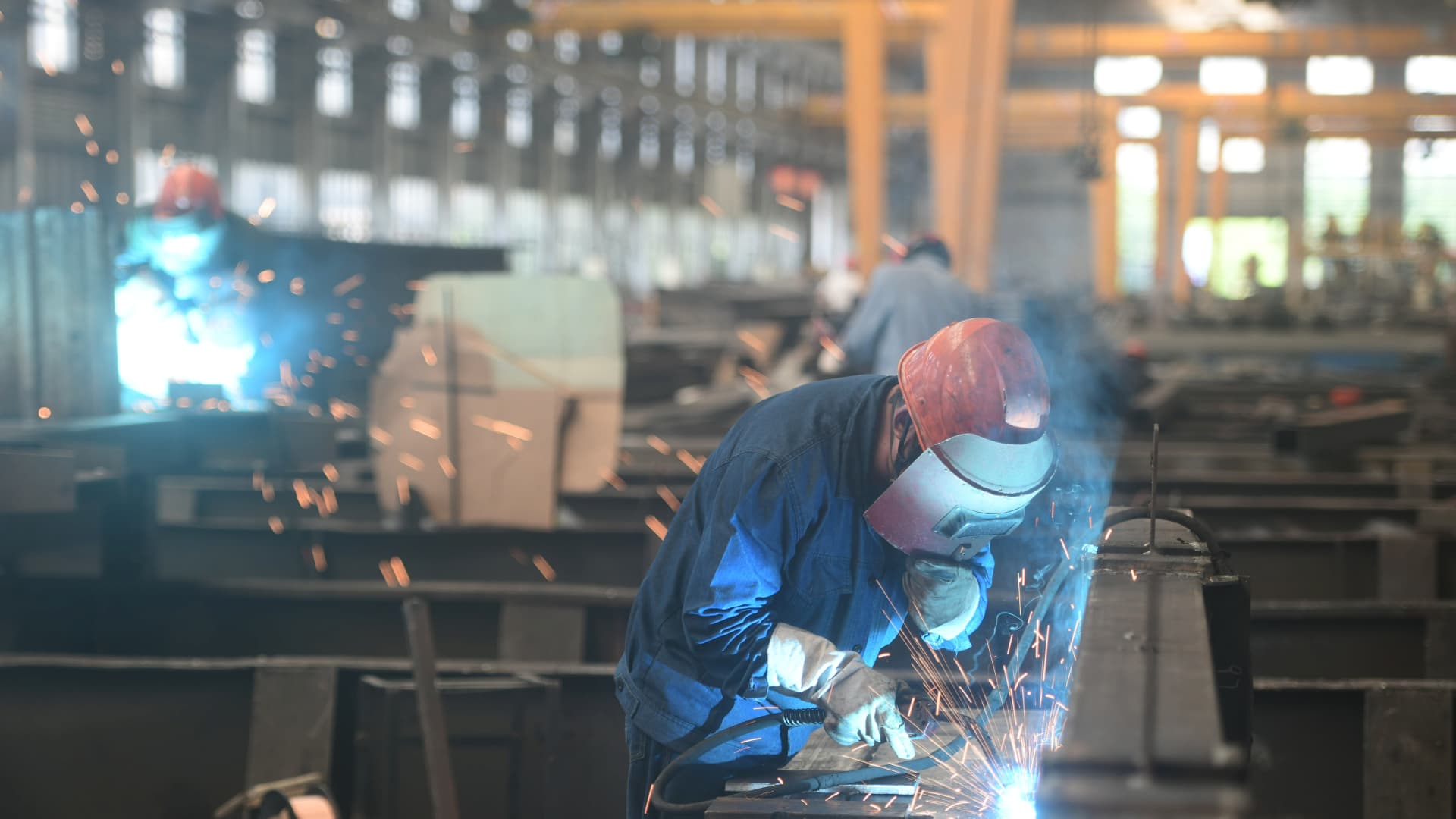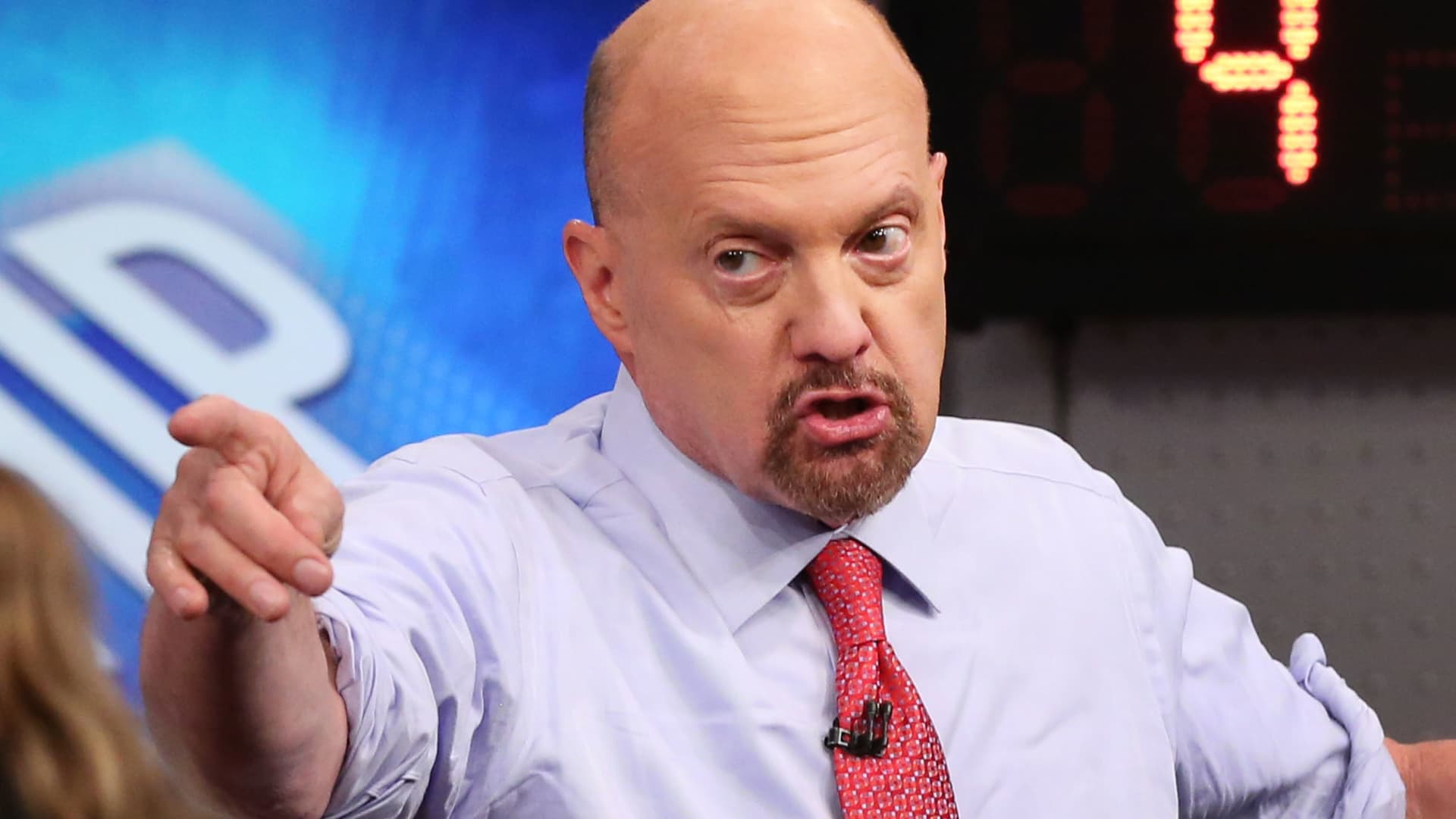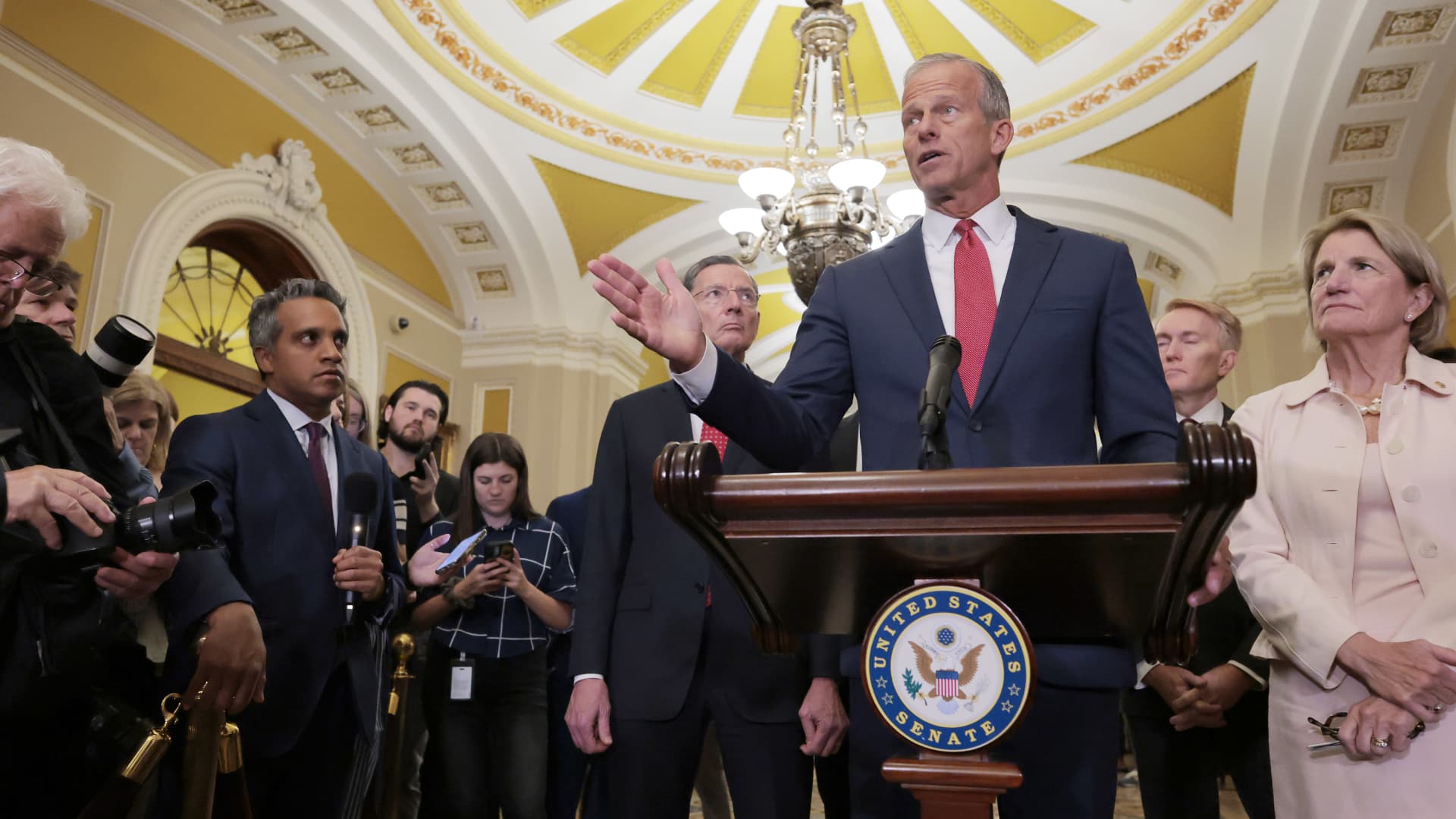CFOTO | Future Publishing | Getty Images
The Caixin/S&P Global manufacturing purchasing managers’ index (PMI) came in at 50.4, beating Reuters’ median estimate of 49.0 and rebounding from 48.3 in May, which had been its worst contraction since September 2022.
The private survey appeared to diverge from the country’s official PMI report, released on Monday, which showed that manufacturing activity contracted for a third consecutive month in June, despite a modest improvement from the previous two months.
The official PMI surveys a larger sample of over 3,000 companies and aligns more closely with industrial output, while the Caixin survey covers a smaller pool of over 500 mostly export-oriented firms, according to Goldman Sachs. The official survey is conducted at month-end, while the Caixin survey is compiled mid-month.
Chinese exporters have sought to front-load shipments to avoid U.S. tariffs, which are poised to rise when the 90-day trade truce expires in mid-August. It remains unclear whether both sides will reach an agreement to extend that reprieve further.
So far, the country’s outbound shipments have held up relatively strong over the past two months, as exporters pivoted to alternative markets, notably Southeast Asian countries and European Union nations.
Its exports to the U.S. plunged 34.5% in May from a year ago and by over 21% in April.
Morgan Stanley economists, however, pointed to softening export momentum to the U.S. and other destinations in recent weeks as the front-loading activity starts to taper.
Beijing and Washington may be moving closer to a resolution of the fentanyl dispute, which will likely see the U.S. drop its 20% fentanyl-related tariff on Chinese goods, according to Neo Wang, lead China economist and strategist at Evercore ISI.
“All we’ve seen so far pointed to further de-escalation,” he said in a note.
This is breaking news. Please refresh for updates.

















Leave a Reply